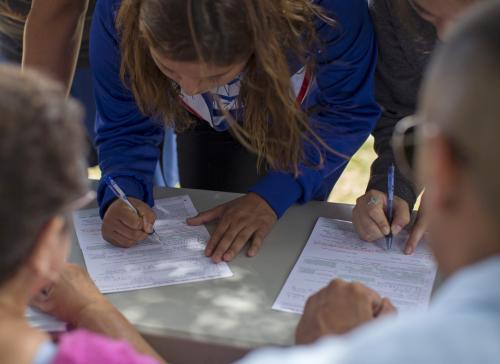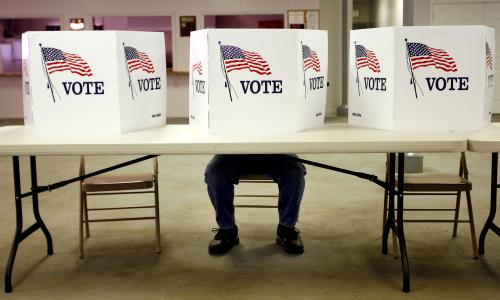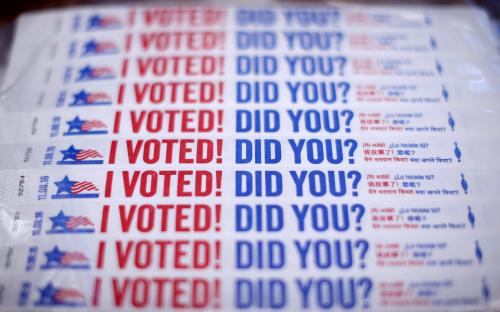In recent weeks, we have witnessed a mad scramble as states prepare to conduct a national election under pandemic conditions. Once it became clear that the government would not successfully contain the virus, this flurry of activity was to some extent unavoidable. But even under normal circumstances, our election administration puts a terrible burden on American voters. America needs a massive reinvestment in our election infrastructure. One policy that should be included in that agenda: voter registration at income-tax filing.
The commotion to prepare for this year’s election is not unique; it happens every election, just on a lesser scale. This year, states are struggling to ensure they have accurate address information to send their voters updates on voting procedures. But every election year, because voter registration is not handled automatically, civic organizations rush to register voters and to update registration information. Enormous nonprofit resources are dedicated to a task that, in other countries, is taken care of more efficiently by the government.
That the onus of voter registration falls, quite unnecessarily, on the citizenry, is strangely parallel to the tax-filing process, in which most Americans are obliged to devote substantial amounts time and money to a system that provides the IRS with information it already has. What if we cut the red tape, and allowed tax filers to also update their voter registration?
Jeremy Bearer-Friend and I discuss just that possibility in a new article in Tax Notes. At either the state or federal level, we propose, voter registration could be easily added to existing tax forms. For instance, on the Form 1040, a tax filer could be asked if they would like to register to vote, and if they answered yes, they would be directed to a “Schedule VR” to complete the information required for registration purposes.
This approach might seem a major change. But in fact, it has been tested and shown to be effective. In Canada, the automatic voter registration process relies heavily on data from the tax agency, and the result has been a dramatic rise in accurate registration data. A federal policy would be the most efficient implementation of tax time voter registration, but the policy could also apply at a state or even a local level—wherever a locality has a tax form.
It’s a policy that fits neatly with the efforts of many states to implement automatic voter registration. The best-case scenario would combine automatic registration with pre-populated tax returns. This approach would hugely reduce the paperwork hassle facing Americans trying to complete the basic tasks of citizenship, while allowing people to update their registration or amend their tax documentation as needed.
COVID-19 has revealed fundamental weaknesses in what should be bedrock American institutions. We cannot just respond with haphazard fixes; we need comprehensive plans to rebuild our infrastructure, including our election administration. One component of the solution should be voter registration at income tax filing.







Commentary
Why we should register voters when they file their taxes
September 1, 2020